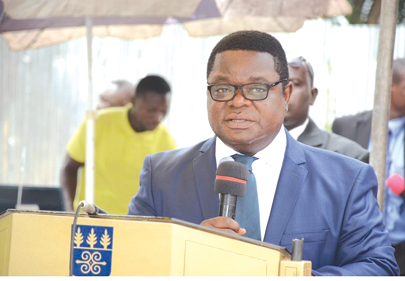Prof. Peter Quartey, Director of the Institute of Statistical, Social and Economic Research (ISSER) at the University of Ghana, is concerned that Ghana’s efforts to secure support from the International Monetary Fund (IMF) may be hampered by the country’s high debt levels.
The IMF delegation is presently conducting a thorough review of the country’s debt sustainability, according to information released by the ministry of finance on Monday.
The professor of economics acknowledges that the IMF has a number of assistance programs that the nation may take advantage of, but she is troubled that the unaffordable levels of the debt generate more questions.
“For IMF, they require that you have a sustainable debt level or a medium-term plan to ensure that, your debt levels become sustainable. They have been sounding this warning, but Ghana’s debt sustainability threshold is not good.”
The Ministry of Finance has acknowledged that an extensive debt sustainability examination for a $3 billion support package has been started with the IMF by its representatives and those of the Bank of Ghana.
The government of Ghana is putting together a thorough post-Covid-19 economic blueprint, which would serve as the foundation for IMF negotiations, according to a statement from the ministry.
“The programme seeks to establish a macro-fiscal path that ensures debt sustainability and macroeconomic stability, underpinned by key structural reforms and social protection.”
The ministry added that it is “optimistic about making progress in our discussions.”
“Government remains committed, and shall continue to actively engage all stakeholders, both public and private, in a clear and transparent manner as we seek to fast-track this process.”
But as anything over 60% raises a red signal, Prof. Peter Quartey worries that “we are at a risk of debt trouble.”
We have already crossed the border, so borrowing money will be difficult for us right now, he remarked on an Eyewitness News segment that Ghanatodayonline.com watched.
Up until October 7, an IMF team will be in Ghana to continue talks with the government about the policies and changes that could be financed by a credit agreement.
Concerns that Ghana is likely to begin negotiations with domestic bondholders on a restructure of its local currency debt have led to the IMF meeting.
According to news sources, significant regional investors, including regional banks and pension funds, are getting ready to have a conversation on debt reorganization.
This can involve delaying maturity dates and taking principle and interest payment reductions.
The first half of Ghana’s debt service obligations came to GH20.5 billion, or 68 percent of tax receipts.
Source: Ghanatodayonline.com
 Ghanatodayonline.com News, Politics, Health, Education & More
Ghanatodayonline.com News, Politics, Health, Education & More




